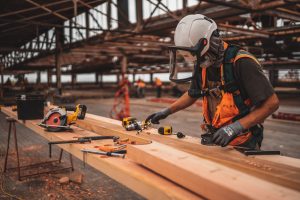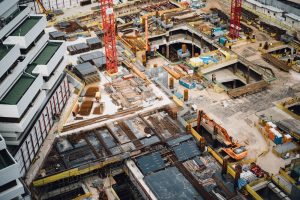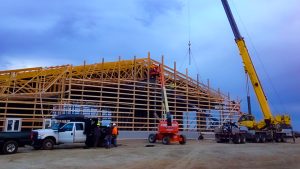A building permit is an official approval that a local government agency issues and entitles construction contractors to proceed with the building work on a property. Its main purpose is to help local government agencies ensure that the plans for a property comply with land use, zoning, and construction rules, regulations, and standards.
There could, however, be some uncertainty about building permits and how they work. Fortunately, we’re here to help and in this post, we’ll aim to demystify building permits and look at what they are, why they’re important, and the process of getting a building permit in more detail.
When Do You Need a Building Permit?
It’s important to note that not all construction projects require a building permit. For instance, when construction contractor services only involve minor alterations or repairs, a building permit would not be necessary.
However, when the construction work is more extensive, like, for instance, new buildings, major alternations, or changes to a building’s structure, it will be necessary to obtain a building permit from the local government agency’s building department. In respect of these permits, the requirements might differ from agency to agency, so it’s always worthwhile to investigate these requirements before applying.
Fortunately, when you use a construction company, they’ll typically apply for the building permit and manage the process until approval on your behalf as part of their construction services.
However, when you do the work yourself, you’ll need to apply for the building permit yourself, which could be somewhat complicated. Also, keep in mind, that, although you can apply for the permit yourself, the local agency might require that some work be done by licensed professionals.
Why Are Building Permits Important?
As we’ve mentioned earlier, building permits are required by law. There are, however, several other reasons why building permits are important. These include:
- Improves safety. Because building permits ensure that buildings are constructed in terms of building regulations and construction rules, they ensure that buildings meet a minimum standard of safety. As such, they improve the safety of buildings and reduce the possibility of injuries to their inhabitants.
- Protects property values. When a building permit is issued in respect of construction work, it shows that the building complies with building regulations and as mentioned, meets a minimum safety standard. As a result, it also protects your property’s value.
- Saves money. Insurance companies will likely not ensure any building or construction work if a building permit has not been issued. As such, they might not cover any work or damages during construction, which, in turn, could have severe financial consequences for you should something go wrong.
- Makes reselling easier. When you sell your building, any prospective buyer will be able to see that all construction work and alternations were done in terms of the required building regulations if a building permit was issued. In addition, many financial institutions won’t finance properties if any building work was done without a building permit.
The Process of Getting a Building Permit
As we’ve mentioned earlier, if you use a construction company, they’ll apply for the building permit on your behalf. If not, you would need to do it yourself. Either way, the process will be as follows:
- The first step is to contact the local government agency to find out whether a building permit is necessary. If it is, the agency will provide an application form that outlines the requirements that need to be complied with.
- The next step is to complete the form and include all the necessary supporting documents to meet its requirements.
- Once completed, the application form can be submitted to the agency, and you’ll need to pay any fees relating to the application. If the agency is satisfied, they’ll issue the building permit certificate.
- When construction work begins, the certificate needs to be posted on the premises as required.
- During building construction, inspections need to be arranged at designated stages. During these inspections, the inspector will visit the construction site and inspect the work completed to date. If any changes need to be made pursuant to these inspections, you need to make these changes and arrange further inspections so that the inspector can review the changes.
- Once the construction work is complete, the inspector will approve the work.
The Bottom Line
Hopefully this post helped illustrate what a building permit is, when you need one, and how to apply for one. To learn more about the process, or to get a quote for your next commercial construction project, get in touch with Konrad Construction.
We take a team-based problem-solving approach to every project, powered by a whatever-it-takes, always-finish-the-job, adapt-and-overcome, can-do attitude. So, let’s build a relationship together.




